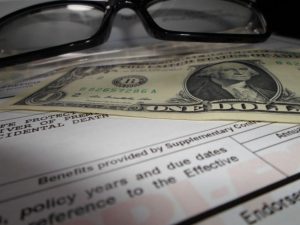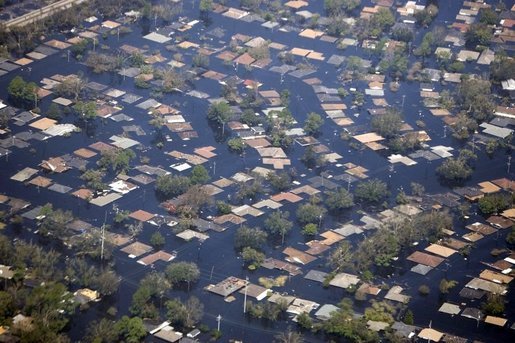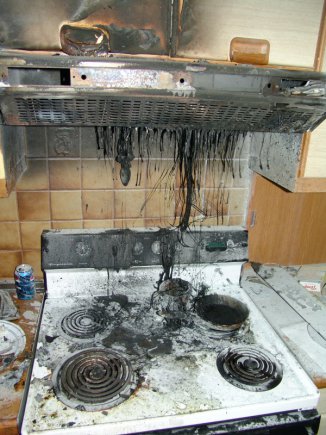How to Make a Business Disaster Recovery Plan
Can you imagine a natural disaster destroying your business? Especially for smaller companies with limited resourcesResources include tools, personnel, equipment, and materials... More, it can be extremely difficult to recover after experiencing a large loss. But what many small business owners are not aware of is that planning for a natural disaster can actually rescue the company from failure.
Benefits of a Business Disaster Recovery Plan
 When creating a business recovery plan, you can prevent accidents from occurring, such as storing important documents away from the property, backing up files, and assessing the condition of indoor plumbing. While larger companies are able to hire risk managers to oversee the risks and work with insurance and disaster restoration companies, smaller companies must depend on their own employees to prevent as much damage as possible.
When creating a business recovery plan, you can prevent accidents from occurring, such as storing important documents away from the property, backing up files, and assessing the condition of indoor plumbing. While larger companies are able to hire risk managers to oversee the risks and work with insurance and disaster restoration companies, smaller companies must depend on their own employees to prevent as much damage as possible.
But if you have already experienced a natural disaster, you must never hesitate to call an emergency restoration company, to recover as many building materials and contents as possible. Overall, this will save you the most time and money during the recovery process.
How to Create the Business Recovery Plan
No matter how large or small the business, it is essential for all companies to have a disaster recovery plan so they can save as much time and money as possible. While the plan will vary for each business, you will find the most important steps to include below.
What to Include in a Business Disaster Recovery Plan
- Establish an emergency plan and practice implementing it. When a natural disaster occurs, time is crucial in saving as many assets as possible. It can also limit property losses.
- Assign each employee responsibilities that are clear and simple to understand. Coordinate mandatory meetings to allow employees to practice carrying out their tasks.
- Develop a list of mandatory phone numbers and addresses. Having a list of all emergency contacts will save enormous amounts of time rather than searching for the phone right number after the disaster.
- Inform customers of the disaster. The amount of information to be disclosed will ultimately depend on you, but it is important that they receive proper notice. This can be done by hanging up notices on your building, calling, e-mailing, or mailing clients, or announcing it on your website.
- Gather emergency items that are needed after the disaster. These items can offer temporary solutions until the business is up and running again, such as back-up generators, communication systems, networks, etc.
- Determine duration of recovery period. If your business does not employ a risk manager or human resourcesResources include tools, personnel, equipment, and materials... More department, ask your restorationRestoration is the process of returning a property to its pr... More company about the expected duration of the recovery process. This way you will have an idea of how soon you can resume business operations.

- Physical assets. Compile a document of the cash value of all assets, including inventory, equipment, machinery, etc. This will help the insurance adjusters pay for the replacement of these resourcesResources include tools, personnel, equipment, and materials... More.
- Local businesses. If the suppliers or customers for your business are local, you must consider the possibility that they may not be able to provide you with the necessary resourcesResources include tools, personnel, equipment, and materials... More to resume normal operations. Although your business was able to survive the disaster, those around you might have taken a financial hit and are no longer able to continue business or services with yours. Make sure to communicate with them about the recovery plan and disaster preparednessPreparedness is the state of being ready to respond to emerg... More before it happens.
- Insure and protect the building. Insuring the assets and ensuring employee safety are extremely important, but don’t forget about bracing the building for impact. This can include inspecting the plumbing to prevent burst pipes, keeping the property clear of debris to avoid it from causing damage during strong winds, and inspecting the condition of the roof to avoid leaks. And if the building were to be left in critical condition, determine how long would it take to make the repairs.
- Back up and duplicate files. Unfortunately, many businesses keep their only copies of their most important documents on the premises. Make sure that you have at least one other copy stored in a secure area away from the building and back up all of your files at least once each week.
- Plan to conduct business at a separate location. If you and your employees are not able to work remotely, consider using a temporary address until the repairs to your original property are finished. This way you can avoid suspending all daily operations.
- Protect computer files and data. While it is important to have a separate storage space for your files, you will also need an off-site data storage firm to provide a backup of your computer data through a high-speed internet connection.
Review Your Insurance Policy
When it comes to insurance, this is not something you want to have only because it is required by law. You will want to make sure it will cover at least the majority of the replacement or repairs costs if the unexpected ever were to happen. If you live in a flood zone, make sure you also have flood insurance because it is not covered under standard policies. In addition, businesses with locations in the mountains may want to consider earthquake insurance because it is also separate.
If you have made any renovations, changes, or additions to your policy, it is important to make sure your policy is updated accordingly.
In addition to having an insurance policy, consider the foregone losses that may occur while the facility is not able to be used due to construction. Make sure to plan ahead as much as possible to ensure that the business will not go under because of lost income. There is also an insurance extension that can be bought in addition to your standard plan to make sure you are covered when the time comes.
Finding a Disaster Restoration Vendor
When choosing a disaster restorationRestoration is the process of returning a property to its pr... More company, it is crucial to choose the right one because the future of your business can depend on your work. When searching for this provider, ask them if they are licensed, certified, experienced, and what kind of equipment they use to restore building materials. A restorationRestoration is the process of returning a property to its pr... More company that has experience in multiple fields, including water damage restoration, fire damage restorationFire damage restoration is the process of repairing and rest... More, reconstruction, etc. would also be helpful as the building may need more than one service.
When searching for the restoration company that best fits your needs, look for those that are licensed, trained, bonded and insured. Many of them will meet the requirements stated above as well as have a 24/7 availability to respond to any emergency. They will arrive on your property within 2 hours and will provide you with all services necessary to return your property to its original condition.












